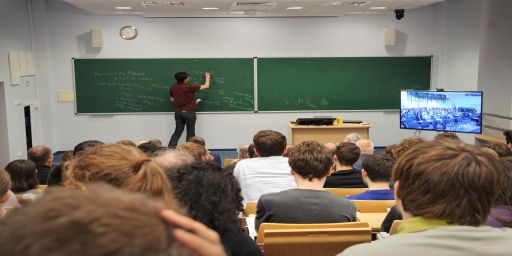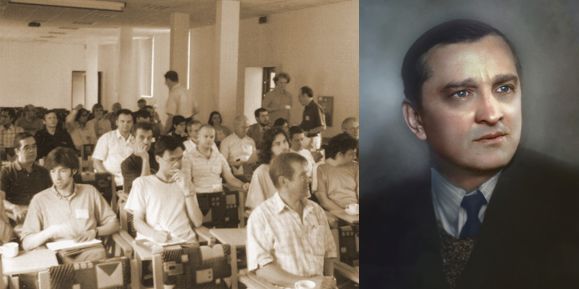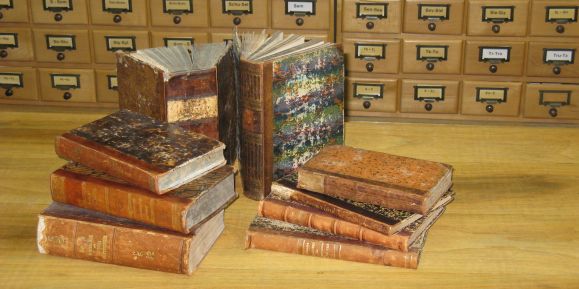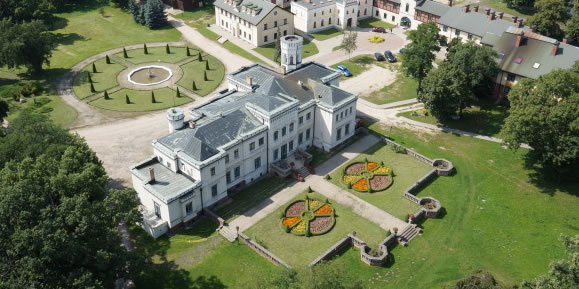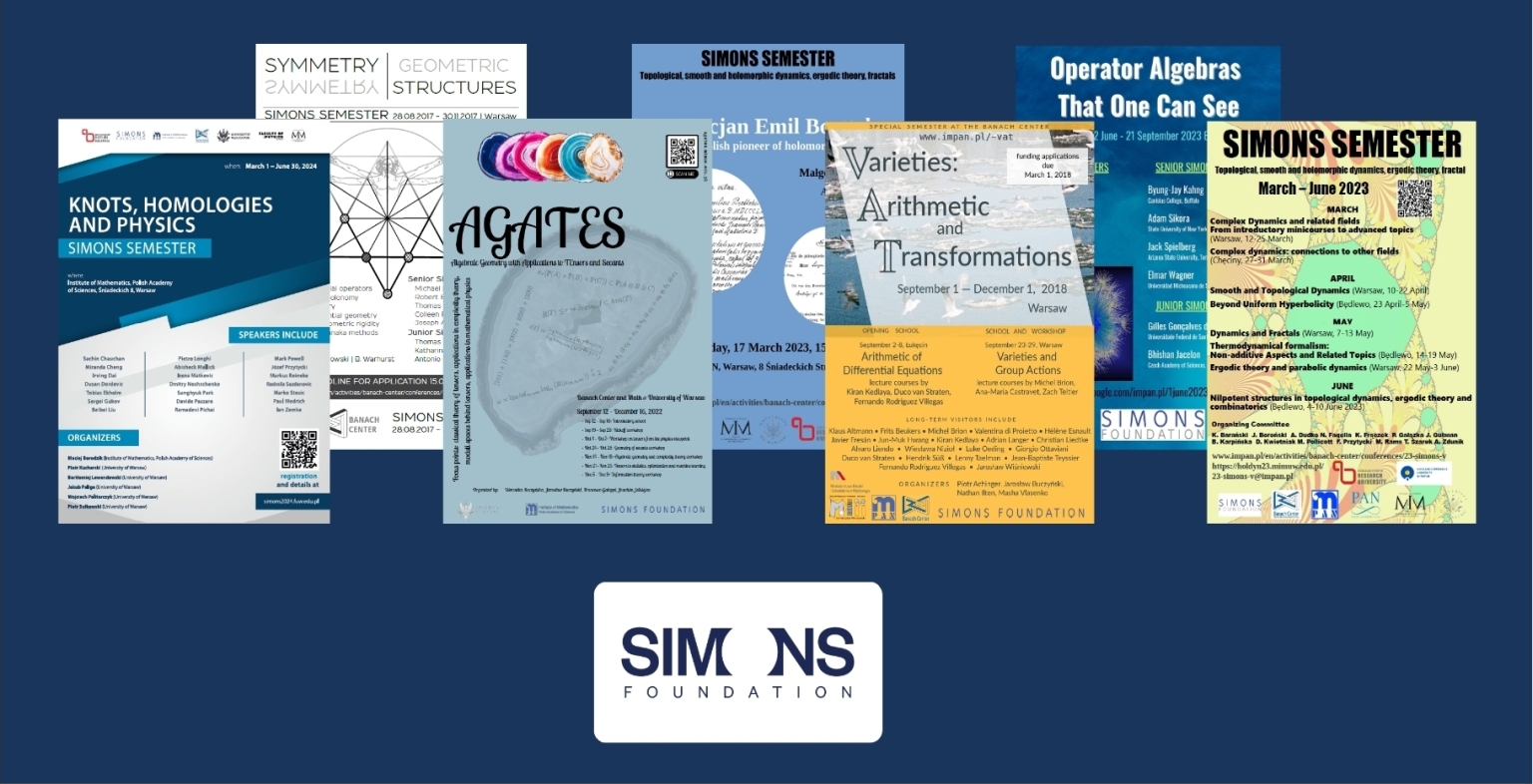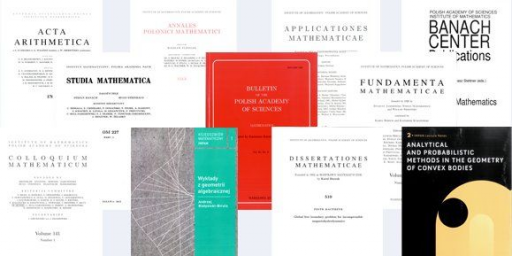Departments
Staff:
Piotr Achinger / prof. IM PAN / e-mailNeeraj Deshmukh / Assistant Professor / e-mail
Veronika Ertl-Bleimhofer / Assistant Professor / e-mail
Sylvain Gaulhiac / Assistant Professor / e-mail
Jakub Koncki / Assistant Professor / e-mail
Feliks Rączka / Graduate Assistant / e-mail
Staff:
Piotr Gwiazda / profesor / e-mailKarol Hajduk / Assistant Professor / e-mail
Jarosław Mederski / prof. IM PAN / e-mail
Joanna Rencławowicz / prof. IM PAN / e-mail
Aneta Wróblewska-Kamińska / prof. IM PAN / e-mail
Michał Łasica / Assistant Professor / e-mail
Yuriy Tomilov
pok. 419 / tel. 22 5228 238
Staff:
Abhishek Ghosh / Assistant Professor / e-mailManish Kumar / Assistant Professor / e-mail
Jan Rozendaal / prof. IM PAN / e-mail
Zdenek Silber / Assistant Professor / e-mail
Adam Skalski / profesor / e-mail
Mateusz Wasilewski / Assistant Professor / e-mail
Michał Wojciechowski / prof. IM PAN / e-mail
Selected publications:
- A. Hassell and J. Rozendaal, L^{p} and H^{p}_{FIO} regularity of wave equations with rough coefficients, Pure Appl. Anal. 5 (2023), 541-599.
- M. Daws, P. Fima, A. Skalski, and S. White, The Haagerup property for locally compact quantum groups, J. Reine Angew. Math. 711 (2016), 189-229.
- A. Skalski and A. Viselter, Convolution semigroups on locally compact quantum groups and noncommutative Dirichlet forms, J. Math. Pures Appl. 124 (2019), 59-105.
- M. Caspers, M. Klisse, A. Skalski, G. Vos, and M. Wasilewski, Relative Haagerup property for arbitrary von Neumann algebras, Adv. Math. 421 (2023), Article ID 109017, 61 pp.
- R. Ayoush and M. Wojciechowski, Microlocal approach to the Hausdorff dimension of measures, Adv. Math. 395 (2022), Article ID 108088, 11 p.
Main research interests:
Jan Rozendaal:
Jan Rozendaal's research lies at the intersection of harmonic analysis and microlocal analysis, with applications to partial differential equations. In particular, he employs Fourier integral operators to study the $L^{p}$ regularity (both in fixed-time and space-time) of wave equations. He is also interested in abstract aspects of operator theory and functional analysis, especially in exploring the interplay between harmonic analysis in Banach spaces and Banach space geometry, with applications to evolution equations.
Adam Skalski:
Adam Skalski is working on the theory of operator algebras in its analytic, probabilistic, and geometric aspects, with a special focus on connections to quantum and classical groups. In particular, he has studied the approximation properties of locally compact quantum groups and their relationship with quantum convolution semigroups. Additionally, he is interested in a variety of operator algebraic questions related to the representation theory of classical and quantum groups.
Yuri Tomilov:
Yuri Tomilov's research interests center around abstract operator theory and classical analysis. They encompass applications of operator theory to evolution equations, particularly those related to asymptotics and functional calculi. In addition, he is interested in a diverse range of operator-theoretical topics with distinct origins, including similarity problems, matrix representations, fine spectral properties, orbits of operators, numerical ranges, and more. On the classical analysis side, he focuses on the theory of one complex variable and its interactions with functional analysis.
Mateusz Wasilewski:
Mateusz Wasilewski's research concerns various aspects of the theory of operator algebras. More precisely, he studies von Neumann algebras, especially approximation properties, such as amenability and Haagerup property. Recently, he started to investigate quantum graphs, noncommutative counterparts of classical graphs, which grew out of quantum information. They are inherently connected to the theory of topological quantum groups, which is also one of his interests.
Michał Wojciechowski:
Michal Wojciechowski is interested in modern applications of functional analysis to classical analysis, including harmonic analysis, partial differential operators, and analytic issues centered around convexity. In his research, he puts emphasis on the study of Banach spaces of differentiable and analytic functions, as well as geometric measure theory.
Staff:
Andrzej Królak / profesor / e-mailWojciech Kryński / prof. IM PAN / e-mail
Rouzbeh Mohseni / Assistant Professor / e-mail
Selected publications:
- K. Grabowska, J. Grabowski, Reductions: precontact versus presymplectic, Ann. Mat. Pura Appl. 202 (2023), 2803-2839.
- K. Grabowska, J. Grabowski, M. Kuś, G. Marmo, Lifting statistical structures,Rev. Math. Phys. 35 (2023), 2250042 (51 pp).
- A. Królak et al.,Search for postmerger gravitational waves from binary neutron star mergers using a matched-filtering statistics, Classical and Quantum Gravity 40(21) (2023), 215008 (29pp).
- A. Królak et al. (LIGO, Virgo, KAGRA Collaborations), GWTC-3: Compact Binary Coalescences Observed by LIGO and Virgo During the Second Part of the Third Observing Run, Phys. Rev. X 13 (2023), 041039.
- W. Kryński, Deformations of dispersionless Lax systems, Classical Quantum Gravity 40 (2023), 235013 (12pp).
- W. Kryński, GL(2)-geometry and complex structures, J. Lond. Math. Soc. (2) 104 (2021), 1717-1737.
- R. Mohseni, R.A. Wolak, Twistor spaces on foliated manifolds, Internat. J. Math. 32 (2021), 2150056 (22 pp).
- T. Crespo, Z. Hajto, R. Mohseni, Real Liouvillian Extensions of Partial Differential Fields,SIGMA 17 (2021), 095 (16 pp).
Main research interests:
HEAD: Prof. dr hab. Janusz Grabowski (Geometric structures in physics)
Is studying various algebraic and geometric structures playing a fundamental rȏle in Differential geometry and Physics. Among them are Poisson and Jacobi structures (in particular, symplectic and contact), Lie algebroids and groupoids, Courant algebroids and Dirac structures, and principles of Hamiltonian and Lagrangian formalisms – all this with applications to Geometric Mechanics, foundations of Quantum Mechanics, Quantum Information Theory, etc. The recent activity, related to the new grant WEAVE-UNISONO led by Prof. Grabowski, concentrates on graded supergeometry.
Prof. dr hab. Andrzej Królak (Mathematical aspects of data analysis from gravitational wave detectors)
The main activity concerns applications of methods of statistics and the theory of stochastic processes to the problem of detection of gravitational waves in the noise of the detector. Detection of gravitational waves that was achieved by LIGO detectors in the year 2015 provided confirmation of Einstein’s theory of gravity and opened a new window on the Universe. Specializing in searches for gravitational wave signals from rotating neutron stars, Prof. Królak has developed a number of theoretical algorithms and tools to performed such searches.
Dr hab. Wojciech Kryński (Differential geometry and geometric control theory)
The research interests include differential geometry, differential equations, and geometric control theory. In particular, I work on problems in conformal geometry, integrable systems, and their applications in mathematical physics, as well as on optimality criteria in control theory.
Dr Rouzbeh Mohseni (Differential geometry and twistor theory, contact manifolds)
The main area of his research is the Riemannian differential geometry, in particular, the theory of foliations, twistor theory, and recently contact geometry.
Seminar:
Geometry and Differential Equations
https://www.impan.pl/~krynski/GDEseminar/
Staff:
Tomasz Klimsiak / prof. IM PAN / e-mailTomasz Komorowski / profesor / e-mail
Rafał Meller / Assistant Professor / e-mail
Tomasz Rychlik / profesor / e-mail
Bogusław Zegarliński / prof. IM PAN / e-mail
Selected publications:
- Klimsiak, T.: Reduced measures for semilinear elliptic equations involving Dirichlet operators. Calc. Var. Partial Differential Equations 55:78 (2016)
- T. Komorowski, J. L. Lebowitz, S. Olla, Heat flow in a periodically forced, thermostatted chain, Comm. Math. Phys. 400, pp 2181-2225 (2023)
- W. Bednorz, R. Martynek, R. Meller, Small cover approach to the suprema of positive canonical processes, arXiv:2401.14045
- J. Navarro, T. Rychlik, F. Spizzichino, Conditions on marginals and copula of component lifetimes for signature representation of system lifetime. Fuzzy Sets and Systems 415 (2021), 99–117
- M. Pitera, Ł. Stettner, Discrete-Time Risk Sensitive Portfolio Optimization with Proportional Transaction Costs, Math. Finance, 33 (2023) no. 4, 1287-1313
- S. Brofferio, D. Buraczewski, T. Szarek, On uniqueness of invariant measures for random walks on HOMEO+(R), Ergodic Theory Dynam. Systems 42 (2022), no. 7, 2207–2238
- C. Roberto, B. Zegarlinski, Hypercontractivity for Markov semi-groups,Journal of Functional Analysis, Volume 282, Issue 12, 15 June 2022, 109439
Main research interests:
Stochastic processes, backward stochastic equations, Dynkin games, control problems and probabilistic potential theory, stochastic PDEs with Levy-type operators, Dirichlet forms, stochastics partial differential equations, applications of probabilisitc methods in mathematical physics, diffusion in proabilistic models, stochastic homogeneization, statistical mechanics, heat transfer models, random polymers, wave dispersion, suprema of stochastic processes, canonical processes, high-dimensional probability, probabilisitc inequalities, reliability theory, stochastic ordering, stochastic control, financial and actuarial mathematics, filtration theory, ergodic theory of Markov processes, stochastic dynamical system, Markov processes, Markov semigroups, coercive inequalities, dissipative dynamics on non-commutative spaces, analysis on groups
- Seminar on Stochastic Processes - Tuesdays once a month, 11.30 - 14.45
- Mathematical Statistics and other applications of probabilisitc methods - Thursdays, 10.00 - 12.00
- Financial mathematics methods - Fridays, 12.15 - 14.00
Staff:
Artem Dudko / prof. IM PAN / e-mailŁukasz Pawelec / Assistant Professor / e-mail
Feliks Przytycki / profesor / e-mail
Michał Rams / prof. IM PAN / e-mail
Adam Śpiewak / Assistant Professor / e-mail
Selected publications:
- Krzysztof Barański, Yonatan Gutman and Adam Śpiewak, On the Shroer-Sauer-Ott-Yorke Predictability Conjecture for Time-Delay Embeddings, Communications in Mathematical Physics 391 (2022), no. 2, 609–641.
- Dudko, Artem and Rostislav Grigorchuk, On spectral properties of the Schreier graphs of the Thompson group F.Transactions of the American Mathematical Society 376.04 (2023): 2787-2819.
- Koivusalo, Henna and Michał Rams, Mass transference principle: From balls to arbitrary shapes, International Mathematics Research Notices 2021.8 (2021): 6315-6330.
- Łukasz Pawelec and Mariusz Urbański, Estimating Hausdorff measure for Denjoy maps, Nonlinearity 36 (2023) 6224–6238
- Feliks Przytycki, Thermodynamic formalism methods in one-dimensional real and complex dynamics, Proceedings of the International Congress of Mathematicians 2018, Rio de Janeiro, Vol.2, pp. 2081-2106.
Main research interests:
The Department of Dynamical Systems consists of Artem Dudko, Yonatan Gutman (head), Łukasz Pawelec, Feliks Przytycki, Michał Rams and Adam Śpiewak. The members conduct research in a very wide spectrum of dynamics. For example: ergodic theory (Gutman, Pawelec), fractal geometry (Rams, Śpiewak), holomorphic dynamics (Dudko, Pawelec, Przytycki), information theory (Gutman, Śpiewak), mathematical physics (Gutman, Śpiewak), metric number theory (Rams), one-dimensional dynamics (Przytycki, Rams), representation theory (Dudko), smooth dynamics (Przytycki, Rams), theormodynamic formalism (Przytycki, Rams), topological dynamics (Gutman).
About the Section:
The key words characterizing IMPAN's research in noncommutative geometry are: K-theory of operator algebras and free actions of compact quantum groups on unital C*-algebras, multi-pullback C*-algebras and free distributive lattices of ideals, index theory of Fredholm modules and spectral geometry of Dirac operators, locally compact quantum groups and universal (free) quantum groups, Hopf-cyclic homology with coefficients and Chern-Galois character, corings and monoidal categories. The assumed research strategy is to explore the feedback between solving concrete difficult problems and developing new mathematical structures. The proposed approach is to unite rather than separate different fields of mathematics by taking advantage of complemetary tools that they offer. To this end, a large scale and intensive international collaboration is currently sustained and planned for the future.
A more systematic and detailed description of the aforementioned research profile is as follows:
1. K-theory of operator algebras. Computing K-theory of C*-algebras of quantum projective spaces of Toeplitz-type. Noncommutative version of the Borsuk-Ulam for a family quantum spheres. Non-existence of Z/2-equivariant homomorphisms from a unital C*-algebra A into its unital suspension SA. Computing the K-theory of noncommutative Bieberbach manifolds. An example of a published paper in this area of research is: P. F. Baum, P. M. Hajac, R. Matthes, W. Szymański, The K-theory of Heegaard-type quantum 3-spheres, K-Theory (2005) 35:159-186.
2. Hopf-cyclic homology and Chern-Galois character. Applying new coefficients of Hopf-cyclic homology and cohomology. Studying relationships between De Rham cohomology with coefficients in flat vector bundles and cyclic homology with coefficients. Version of the local index formula of Connes-Moscovici for twisted cyclic cohomology. Extending cyclic (co)homology with coefficients from algebras to monoidal functors. Among pivotal papers for this area of research are: P. M. Hajac, M. Khalkhali, B. Rangipour, Y. Sommerhäuser, Hopf-cyclic homology and cohomology with coefficients, C. R. Acad. Sci. Paris, Ser. I 338 (2004) 667-672; T. Brzeziński, P. M. Hajac, The Chern-Galois character, C. R. Acad. Sci. Paris, Ser. I 338 (2004) 113-116.
3. Spectral geometry and index theorem. Proving an analogue of the 2-dimensional Gauss-Bonnet for spectral triples. Stability of spectral triples and regular spectral geometries. Constructing spectral triples on cross-products of C*-algebras and studying their topological properties. Studying contact structures by means of noncommutative geometry. An example of a published paper related to this area of research is: P. M. Hajac, R. Matthes, W. Szymański, Noncommutative index theory of mirror quantum spheres, C. R. Acad. Sci. Paris, Ser. I 343 (2006) 731-736.
4. Quantum group actions. Equivalence of principality of actions by compact quantum groups on unital C*-algebras and the Hopf-Galois condition for induced coactions of corresponding polynomial Hopf algebras. Applying non-contractibility of compact quantum groups to prove non-triviality of noncommutative principal bundles obtained by means of the join construction of compact quantum groups. Proving principality of piecewise principal actions. Constructing examples of quantum spaces without group structure and actions of non-compact locally compact quantum groups. Quotienting of locally compact quantum groups by their closed subgroups. Studying quantum symmetry groups of group C*-algebras, especially focused on their representation theory. In particular, classification of compact group actions on the C*-algebra of 2 by 2 matrices. Finding non-classical quantum permutations on two elements. Extending Hopf-Galois theory to monoidal categories. An example of a published paper in this area of research is: P. M. Sołtan: Examples of non-compact quantum group actions, J. Math. Anal. Appl. 372 (2010), 224-236.
5. Quantum spaces, sets, and cohomology. Noncommutative deformations of complex projective spaces glued from Toeplitz cubes and other multi-pullback constructions of algebras. Constructing of a category of quantum sets (or quantum algebraic sets) and extenting of the contravariant adjunction between the category of sets and the category of commutative algebras to noncommutative sets and associative algebras. Generalizing the notion of a discrete (or algebraic) group to the corresponding notion making sense for quantum sets (or quantum algebraic sets). Constructing a recursive algorithm for computing genus zero Gromov-Witten invariants of some Fano varieties, generalizing the formula of Kontse
Staff:
Michał Bogdan / Assistant Professor / e-mailPaweł Dłotko / Kierownik Centrum Dioscuri / prof. IM PAN / e-mail
Bartosz Naskręcki / Assistant Professor / e-mail
dr inż. Justyna Signerska-Rynkowska / Assistant Professor / e-mail
Rafał Topolnicki / Assistant Professor / e-mail
Description:
Our mission is to develop novel mathematically rigorous geometry and topology based shape descriptors to solve important applied problems in Science, Engineering and Medical Sciences.
Our current projects include:
- Designing new mathematically rigorous methods of data analysis and visualization, integrating them with statistical, machine learning and artificial intelligence frameworks.
- Developing new methods of time series analysis and underlying dynamic reconstruction, with aim of analyzing financial, biological and medical time series.
- Developing invariants of geometrical objects, including neurons, airways, blood vessels, polymers, porous materials, and others.
- Developing geometry based methods in engineering, including new polyhedral mesh generators as well as geometry-inspired numerical methods in engineering.
Our projects will have theoretical, algorithmic and implementation components. They are conducted in the wide international environment of the Centre, including at partner scientific and industrial institutions in Germany, UK, France, US and worldwide. Our partner in the Dioscuri project is Prof. Dmitry Feichtner-Kozlov and the Institute for Algebra, Geometry and their Applications at the University of Bremen.
Link:
https://dioscuri-tda.org/
Description:
The AI Lab at IMPAN is led by two senior research scientists, Łukasz Kuciński and Piotr Miłoś, and consists of roughly 20 PhDs and post-docs. The lab’s mission is to make scientific contributions to AI research, spanning topics from large language models (LLMs), AI safety, autonomous agents, sequential decision-making, and AI for science. We believe that advancements in AI will lead to unprecedented progress in almost every area of human life, significant scientific breakthroughs, and solutions to critical global problems.
Achievements:
The lab was built from scratch and is a leading AI center in Poland.
The lab regularly publishes at the top AI venues like NeurIPS, ICLR, and ICML.
First PhD defense, multiple master students including the prize for best master thesis in CS for Szymon Tworkowski in 2023.
Cooperation with multiple academic (Stanford, Oxford, MPI) and corporate (Google, Deepmind, OpenAI) partners.
Selected publications:
- Maciej Mikuła, Szymon Antoniak, Szymon Tworkowski, Bartosz Piotrowski, Albert Qiaochu Jiang, Jin Peng Zhou, Christian Szegedy, Łukasz Kuciński, Piotr Miłoś, Yuhuai Wu, Magnushammer: A Transformer-based Approach to Premise Selection, ICLR 2024 (top-50 with average score 8.0).
- Szymon Tworkowski, Konrad Staniszewski, Mikołaj Pacek, Yuhuai Wu, Henryk Michalewski, Piotr Miłoś, Focused Transformer: Contrastive Training for Context Scaling, NeurIPS 2023.
- Michał Zawalski, Michał Tyrolski, Konrad Czechowski, Damian Stachura, Piotr Piękos, Tomasz Odrzygóźdź, Yuhuai Wu, Łukasz Kuciński, Piotr Miłoś, Fast and Precise: Adjusting Planning Horizon with Adaptive Subgoal Search, ICLR 2023 (spotlight, notable-top-5%).
- Łukasz Kaiser, Mohammad Babaeizadeh, Piotr Miłoś, Błażej Osiński, Roy H. Campbell, Konrad Czechowski, Dumitru Erhan, Chelsea Finn, Piotr Kozakowski, Sergey Levine, Ryan Sepassi, George Tucker, Henryk Michalewski, Kaiser et al. Model-Based Reinforcement Learning for Atari, ICML 2020 (spotlight).
Staff:
Karol Duda / Assistant Professor / e-mailAntonio López-Neumann / Assistant Professor / e-mail
Piotr Nowak / prof. IM PAN / e-mail
Description:
The research group focuses on geometric and analytic properties of groups, and their applications in areas such as index theory, topology of manifolds. Research topics include cohomology of groups with coefficients in Banach space representations, in particular l_2 and more generally l_p cohomology, spectral gaps, expanders and their higher dimensional analogs, Baum-Connes-type conjectures.
Selected publications:
1. Marek Kaluba, Dawid Kielak, Piotr W Nowak, On property (T) for Aut(F_n) and SL_n(Z),Annals of Mathematics, Vol. 193 (2021), Issue 2, p. 539–562
2. Piotr W. Nowak, Poincaré inequalities and rigidity for actions on Banach spaces, Journal of the European Mathematical Society (JEMS) 17 (2015), no. 3, 689--709
3. Piotr W. Nowak, Guoliang Yu, Large Scale Geometry, EMS Textbooks in Mathematics 2012, European Mathematical Society Publishing House.
Research team:
Piotr Achinger
Neeraj Deshmukh
Veronika Ertl-Bleimhofer
Sylvain Gaulhiac
Feliks Rączka
Anna Szumowicz.
Description:
The project is devoted to the study of algebraic varieties and other algebraically defined geometric objects, especially over fields other than the complex numbers. The more specific goals belong are related to:
- Étale fundamental groups and étale homotopy
- Characteristic p and p-adic geometry
- Wild ramification of ℓ-adic sheaves and irregular singularities of differential equations
- Applications of logarithmic geometry to topology of algebraic varieties
Link:
https://achinger.impan.pl/kapibara.html
Seminar:
Wednesdays, 11-12:30 in room 408
Seminar webpage
Research team:
prof. dr hab. Piotr Koszmider
dr hab. Maciej Malicki
dr Zdenek Silber
dr Kentaro Yamamoto
Description:
Set-theoretic combinatorial and topological methods in diverse fields of mathematics, with a special emphasis on abstract analysis like Banach spaces, Banach algebras, C*-algebras. Here we include both the developing of such methods as forcing, descriptive set theory, Ramsey theory as well as their concrete applications in the fields mentioned above.
Seminar:
Working group in applications of set theory (website: https://piotrkoszmider.github.
Seminar on forcing and equivalence relations

